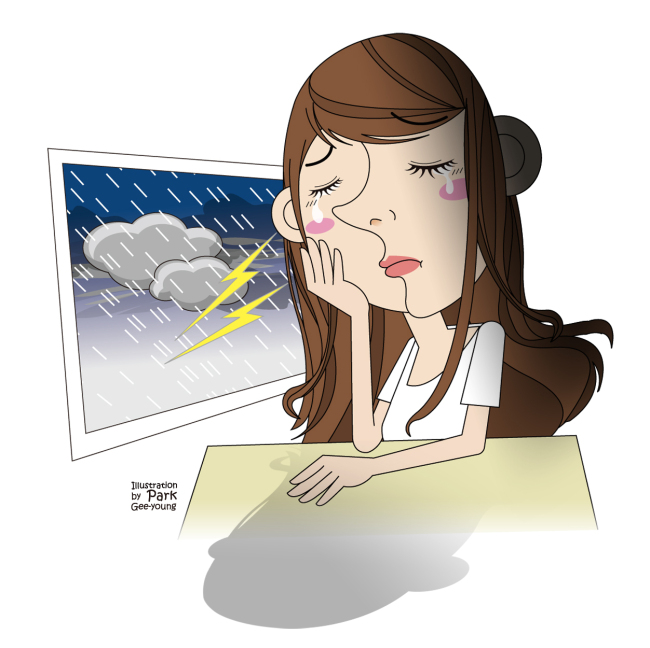During the rainy season, the decreased amount of sunlight can cause people to feel depressed. This is similar in mechanism to the development of seasonal depression during autumn and winter when there is a decreased amount of sunlight. However, the duration of the rainy season is shorter, which means that this type of depression is not as severe.
Decreased sunlight leads to decreased production of melatonin, a neurotransmitter, which disrupts the circadian rhythm and causes depression. Melatonin works on the pineal glands of the brain, and is mainly produced during the night.
People usually only experience temporary depression when there is a decrease in the amount of melatonin produced.
Decreased sunlight leads to decreased production of melatonin, a neurotransmitter, which disrupts the circadian rhythm and causes depression. Melatonin works on the pineal glands of the brain, and is mainly produced during the night.
People usually only experience temporary depression when there is a decrease in the amount of melatonin produced.

“Seasonal depression” starts during autumn and winter when there is a decreased amount of sunlight, and improves over the spring and summer when there is increased sunlight. This is less common near the equator where there is no significant difference in the amount of sunlight between the seasons. It is more common in higher latitudes, being the most commonly reported in Europe. It is twice as common in females compared to males.
This type of seasonal depression is generally different in symptoms to general depression. General depression is associated with symptoms such as decreased appetite and insomnia, but in patients with seasonal depression, they have increased sleep, causing them to stay in bed longer and have no energy. These patients also have increased appetite, so they consume more carbohydrates and gain weight. As with general depression, the patients feel depressed, low in energy, feel tired easily and have decreased motivation.
There is no known cause of seasonal depression. However, unlike general depression where the changes in the function controlling sleep and eating lead to insomnia and decreased appetite, we describe as “atypical depression” cases where patients experience the opposite (hypersomnia and increased appetite). Depression associated with the season is often atypical in clinical presentation. It is not known why some people experience decreased appetite with depression, whereas others develop atypical presentations.
You may experience depression with a decreased level of activity during the rainy season. It helps to maintain a positive attitude, think happy thoughts, and eat a balanced and regular diet.

By Kang Eun-ho
The writer is a professor of neuropsychiatry at Sungkyunkwan University School of Medicine and Samsung Medical Center. ― Ed.








![[KH Explains] How should Korea adjust its trade defenses against Chinese EVs?](http://res.heraldm.com/phpwas/restmb_idxmake.php?idx=644&simg=/content/image/2024/04/15/20240415050562_0.jpg&u=20240415144419)










![[Today’s K-pop] Stray Kids to return soon: report](http://res.heraldm.com/phpwas/restmb_idxmake.php?idx=642&simg=/content/image/2024/04/16/20240416050713_0.jpg&u=)